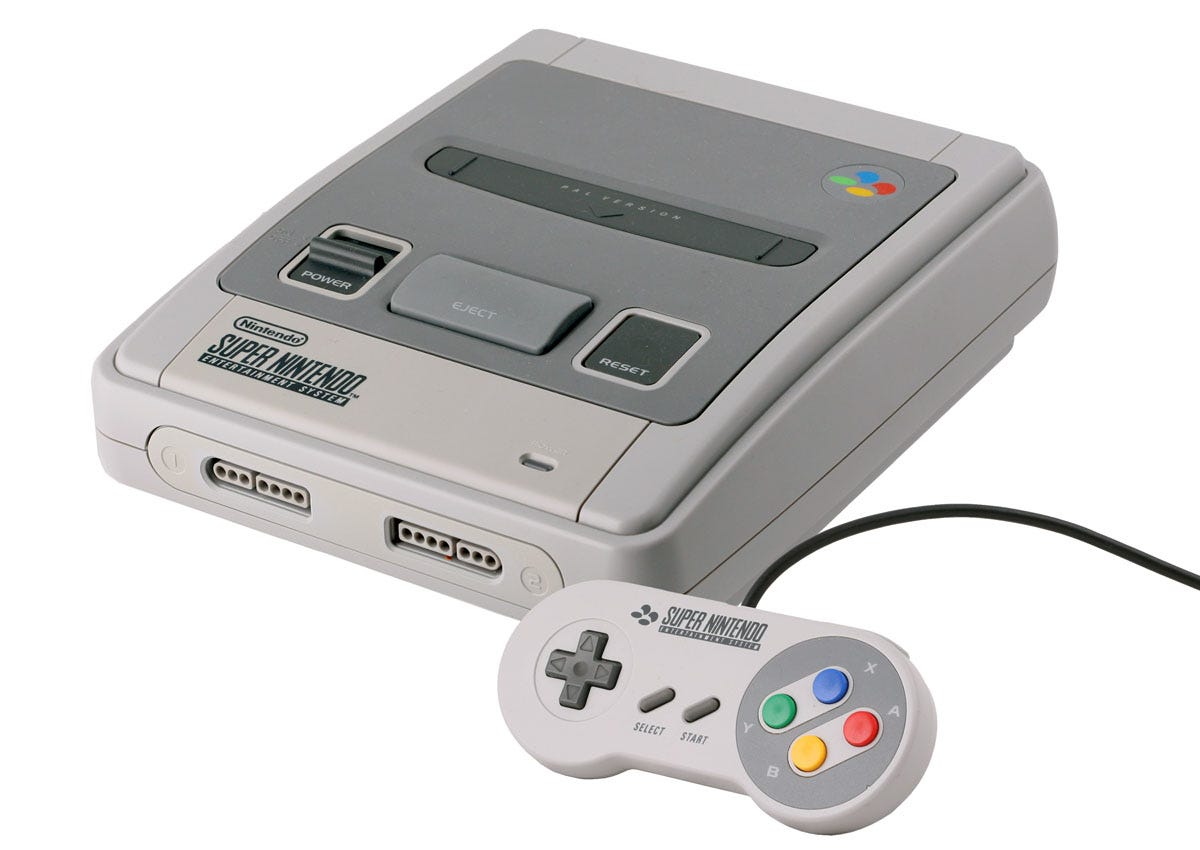Consoles Can Go Faster, Too? - The Gold Split - Week #36
The Gold Split is a free weekly newsletter focused on speedrunning. This week's main story is all about consoles that might appear to become faster with increasing age.

The Gold Split Newsletter - Week #36 - Consoles Can Go Faster, Too?
The Gold Split offers a free, weekly digest of news from the world of speedrunning and beyond.
This Story of the Week is all about consoles that might appear to become faster with increasing age. and was featured in this week's issue. The full post includes more news, briefly, as well as a fun fact and this week's top times. Check it out HERE.
Story of the Week ✨
There are several factors outside of player skill that can make a difference in a speedrun, but that are usually accounted for in order to level the playing field: different emulators, console generations, storage mediums… the list goes on. But usually, console hardware between identical consoles of the same generation is assumed to perform perfectly consistently. This assumption of consistency is necessary in order to make runs comparable.
Tool-Assisted Woes
In the world of tool-assisted speedruns, the humble SNES has troubled the community for a long time. Attempting to play back a tool-assisted speedrun on a real console rather than an emulator would more often than not lead to desynchronisation issues. When inputs are scheduled to happen down to the individual frame, consistency is key.
 Image credit: JCD1981NL via Wikimedia Commons (CC BY-SA 4.0)
Image credit: JCD1981NL via Wikimedia Commons (CC BY-SA 4.0)
As reported by ArsTechnica, 404media, and IGN, Allan Cecil, better known as dwangoAC, keeper of TASBot, has recently launched a large-scale investigation into the underlying issues. On Bluesky, he asked community members with an SNES and a flash cart to run a software test on their console and report the outcome.
More than 100 people responded, and the results were consistent. One specific frequency measurement seems higher on average than it was more than 20 years ago, implying that this part of the console may be becoming faster as it ages.
Technical Details
The aforementioned articles do a much better job at explaining the technical details, so I’ll keep this short. The SNES uses an audio processing unit (APU) with a digital signal processing rate of 32,000 Hz, at least according to the documentation. This sample rate is set by a ceramic resonator, and these types of resonators are known to be affected by external factors like heat.
Emulator developers had already noticed a trend toward a faster sample rate in the 2000s. In order to compensate and to make the emulator work for all games, the emulated sample rate is set slightly higher than the documented one, at 32,040 Hz.
dwangoAC’s collected test results from the community suggest that it might now be even higher with an average of 32,076 Hz, while heat fluctuations had a much more minor impact than expected.
In practice, a faster sample rate means that audio data is being delivered slightly faster. This often happens during room transitions or between levels. During regular gameplay the game still runs identically, but loading times will be sped up ever so slightly, not noticeable to a human.
Real-Time Speedrunning
We all want to know: what does this mean for real-time speedrunning on SNES hardware? Well… it’s complicated. The consensus so far seems to be that the difference in loading times between consoles is not big enough to impact RTA speedrunning, and that even on longer runs we’re far away from deviating by even a single second. Secondly, the true impact also depends a lot on the individual game, the audio driver and the interactions between them.
There are however plenty of games played at a very high level on real SNES consoles that measure their leaderboard times down to the millisecond. Hypothetically, if two runners in a longer run like Super Metroid (Any%) or The Legend of Zelda: A Link to the Past (No Major Glitches) finish less than a second apart, could the difference in sample rates be enough to matter? I can’t say.
Ultimately, there is not enough reliable historical data to confirm the trend that the speed of the SNES consoles has increased with time. The only other sources are Nintendo’s documentation and single measurements on a smaller scale. It might very well be that the speed is consistent over time, but varies more widely than expected between consoles. It’s an important reminder that perfect consistency is difficult to achieve.
Further Reading
Besides the already mentioned articles by ArsTechnica and 404media, I recommend the much more technical blog post by undisbeliever.
You’ll find the data from the community’s test results on Grist and can stay up to date with the most recent developments or join the discussion on the TASBot Discord.

Thank you for reading! If you're curious about more of this week's news or would even consider subscribing to the newsletter, you'll find the full post over HERE.
Finding new stories to cover can be challenging. I encourage you to think about what happened recently in the communities you are a part of. If there are any stories, articles, glitches, events, or other topics I should be taking a look at, go ahead and submit them here or on the Gold Split Discord! 📨
The Gold Split is a free weekly newsletter focused on speedrunning. This week's main story is all about Twitch's recent announcement of limiting the storage of highlights.
The Gold Split is a free weekly newsletter focused on speedrunning. This week's main story is all about the recent RTA and IGT records in Super Metroid.
The Gold Split is a free weekly newsletter focused on speedrunning. This week's main story is all about speedrunning real life public transit networks.
The Gold Split is a free weekly newsletter focused on speedrunning. This week's main story is all about people's speedrunning-related goals and predictions for 2025.
The Gold Split is a free weekly newsletter focused on speedrunning. This week's main story is all about arbitrary awards to wrap up the year of speedrunning.
The Gold Split is a free weekly newsletter focused on speedrunning. This week's main story is all about Suigi's sweep of all five main Super Mario 64 categories.

